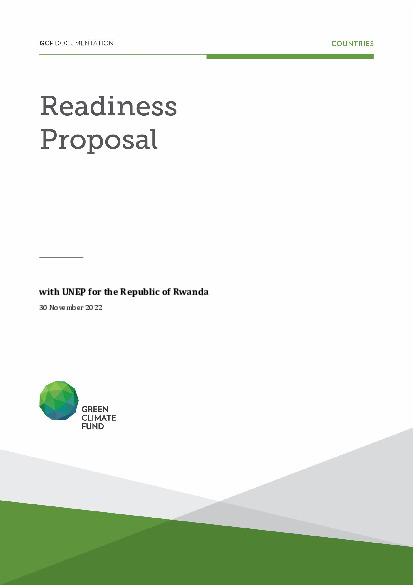Rwanda Cooling Initiative: Enabling Deployment of Energy-Efficient and Climate-Friendly Cooling

Rwanda Cooling Initiative: Enabling Deployment of Energy-Efficient and Climate-Friendly Cooling
The demand for cooling and refrigeration in the Republic of Rwanda (hereafter Rwanda) is projected to increase substantially as the population and economy continue to grow amidst a warming climate.1 The demand not only comes from households (e.g. air conditioners, refrigerators), but from the agricultural value chain and vaccine cold chains (e.g. cold trucks, cold rooms, commercial cooling storage). The growing demand for cooling will raise consumption of electricity, straining Rwanda’s electrical grid and intensifying direct and indirect CO2 emissions.
The government aims between 2015 and 2030 to reduce greenhouse gas (GHG) emissions by 38 per cent.2 To meet this ambitious target, it is critical to establish a strong policy and regulatory framework and promote higher efficiency cooling appliances and a sustainable cold chain. Rwanda has adopted Minimum Energy Performance Standards (MEPS) and energy labels for room air conditioners and refrigerators, but it does not have detailed methods for national implementation and enforcement, and financial, social, and technical challenges exist. The lack of capacity and a framework for implementing MEPS and labels, limited experience with innovative business models for financing sustainable cooling solutions, as well as low levels of consumer awareness of why and how to purchase or lease higher efficiency cooling products constrain Rwanda’s ability to maximize market transformation.
The project aims to help the country leapfrog to energy-efficient and climate-friendly cooling solutions by enhancing the capacities of stakeholders (particularly national officials with regulatory oversight of cooling products, equipment vendors and technicians, small shareholder famers, and agribusinesses) for pursuing strategic priorities, developing an implementation framework for MEPS and labels for room air conditioners and refrigerators, developing strategies for attracting investment and enhancing knowledge with consumers and other stakeholders. Rwanda’s National Cooling Strategy (NCS) from 2019 was developed with the United Nations Environment Programme’s United for Efficiency Initiative (UNEP U4E). The NCS is consistent with U4E’s Integrated Policy Approach, which addresses MEPS and labels as the foundation for market transformation, and recommends complementary interventions such as communications campaigns, financial mechanisms, oversight and enforcement, and environmentally-sound management (ESM) with proper collection and recycling at the end of product life.